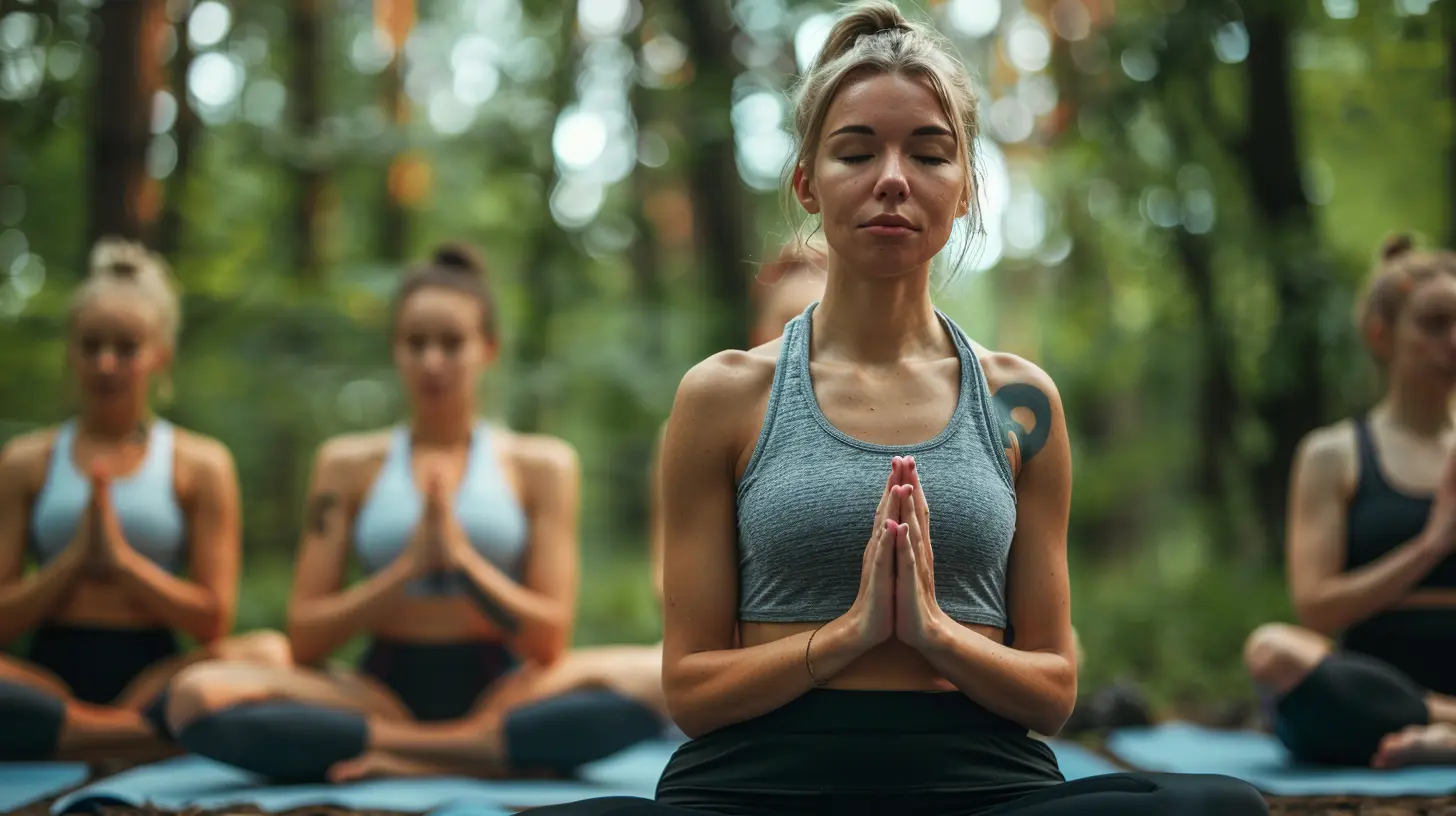6 April 2025
Endurance training pushes the body and mind to their limits. Whether you're a marathon runner, a cyclist, or a triathlete, you know that endurance sports demand more than just physical strength. Mental resilience plays a significant role in how far and how long you can go.
But what if I told you that meditation—a practice often associated with stillness and relaxation—could be a game-changer for endurance athletes? Sounds paradoxical, right? After all, meditation and endurance training seem like polar opposites. One is about sitting quietly, while the other demands intense physical exertion.
However, science and real-world experiences show that meditation can significantly enhance endurance performance. Let’s dive deep into how a calm mind can help you go the extra mile—literally.

Understanding Endurance Training
Endurance training isn’t just about running long distances or spending hours on a bike. It’s about building stamina, increasing cardiovascular efficiency, and developing the mental fortitude to push through discomfort.Think of your body as a high-performance car. You can have the best engine (strong muscles, efficient lungs), but if your mind—the driver—isn't focused, disciplined, and resilient, your performance will suffer.
That’s where meditation comes in. It transforms the way athletes handle pain, fatigue, and mental barriers.

How Meditation Benefits Endurance Athletes
1. Enhances Mental Toughness
Endurance sports require an unshakable mindset. You’ll hit points where your body screams at you to stop. Meditation helps you develop mental resilience by training your mind to stay calm under pressure.Regular meditation teaches athletes to acknowledge discomfort without letting it dictate their decisions. Instead of saying, “I can’t do this anymore,” meditation helps you say, “This is tough, but I can keep going.”
2. Improves Focus and Concentration
Have you ever zoned out during a long run and suddenly realized you lost your rhythm? Or found yourself distracted by negative thoughts when fatigue sets in?Meditation strengthens your ability to focus. By training your mind to stay present, you become better at maintaining proper form, breathing efficiently, and keeping a steady pace.
Mindfulness meditation, in particular, helps athletes stay in the moment. Instead of worrying about how many miles are left, you stay focused on each step, each breath, and each movement.
3. Lowers Perceived Effort
Ever noticed that time flies when you're engaged in something enjoyable but drags when you’re suffering? Meditation shifts your perception of effort, making intense physical activity feel less grueling.Research suggests that athletes who practice meditation report lower levels of perceived exertion. This means that, even when they’re pushing hard, they don’t feel as exhausted as they normally would.
4. Boosts Pain Tolerance
Endurance training isn’t pain-free. Whether it’s sore muscles, aching joints, or overall fatigue, discomfort is part of the game.Meditation has been shown to alter how the brain perceives pain. Instead of resisting it, meditators learn to accept and move through it. This doesn’t mean pain disappears—but it becomes manageable.
Elite athletes often talk about "embracing the pain" or "leaning into discomfort." Meditation teaches exactly that.
5. Regulates Breathing for Better Oxygen Flow
Breathing is fundamental to endurance sports. Effective breathing ensures optimal oxygen delivery to muscles, reducing fatigue and enhancing performance.Meditation improves breathing efficiency. Practices like diaphragmatic breathing and pranayama (from yoga) train athletes to take deeper, slower breaths. This translates to better endurance and a more relaxed state during intense efforts.
6. Reduces Anxiety and Pre-Race Jitters
Let’s face it—nerves can wreck performance. Whether it's before a marathon or an Ironman event, anxiety can cause shallow breathing, increased heart rate, and poor decision-making.Meditation calms the nervous system, lowering cortisol (the stress hormone) and promoting a sense of ease. Many elite athletes incorporate meditation into their pre-race routine to stay composed under pressure.
7. Improves Recovery and Sleep
Endurance training takes a toll on the body. Recovery is just as important as training itself, and meditation accelerates the healing process.By promoting relaxation, meditation reduces muscle tension and inflammation. It also enhances sleep quality, ensuring you get the deep rest needed for muscle repair and growth.
If you’ve ever struggled to sleep the night before a big race, meditation could be the key to a restful night.

How to Incorporate Meditation into Endurance Training
Now that you know the benefits, the next step is integrating meditation into your training plan. Here’s how:1. Start Small
You don’t need to meditate for an hour. Even 5-10 minutes daily can make a difference. Begin with short sessions and gradually increase your practice.2. Focus on Your Breath
Breathing exercises are a great gateway into meditation. Try this:- Inhale for four counts
- Hold for four counts
- Exhale for four counts
This simple technique calms the mind and improves breath control.
3. Practice Mindfulness During Training
Meditation doesn’t have to be confined to a cushion. Bring mindfulness into your workouts by focusing on each breath, step, or pedal stroke.4. Use Guided Meditations
Apps like Headspace and Calm offer guided sessions specifically for athletes. These help you stay consistent and build a structured practice.5. Incorporate Visualization Techniques
Visualization is a powerful form of meditation. Before a big race or training session, close your eyes and mentally rehearse yourself performing at your best. Imagine each step, each breath, and each moment of success.6. Meditate Post-Workout
After an intense session, take a few minutes to sit quietly, focus on your breathing, and allow your body to relax. This aids recovery and prevents mental burnout.
Real-Life Endurance Athletes Who Meditate
Many top endurance athletes swear by meditation.- Novak Djokovic (tennis champion) credits meditation for his mental strength on the court.
- Kobe Bryant incorporated mindfulness into his daily routine to stay focused and resilient.
- Rich Roll (ultramarathoner and endurance athlete) practices meditation to enhance performance and manage stress.
If the world’s top athletes are doing it, there’s definitely something to it!
Final Thoughts
Meditation and endurance training might seem worlds apart, but they complement each other perfectly. A strong body alone won’t carry you through grueling workouts or races—your mind plays an equally crucial role.By incorporating meditation into your routine, you’ll build mental toughness, improve focus, regulate breathing, and enhance recovery. And who knows? You might just find yourself breaking personal records with a calmer, more focused mindset.
So, the next time you lace up your running shoes or hop on your bike, remember: endurance isn’t just about how far you can go—it’s also about how strong your mind is.




Fern Jones
Meditation enhances mental clarity and focus in endurance training, fostering resilience. It's a valuable tool for athletes seeking balance and improved performance.
April 8, 2025 at 3:17 AM